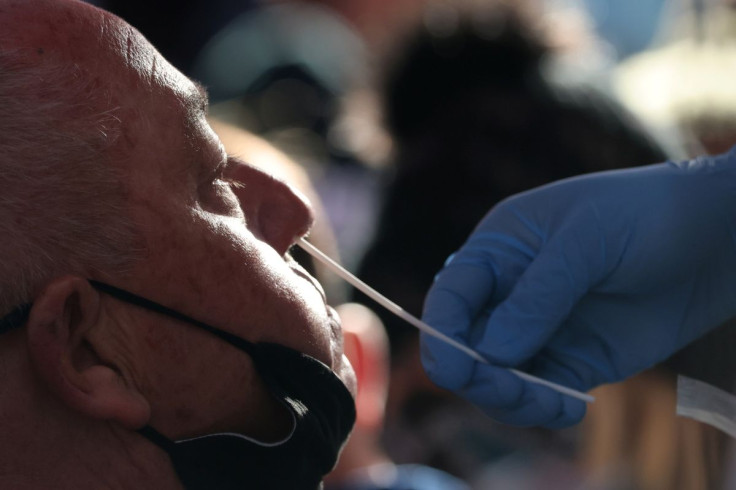New COVID-19 Variants Reinfecting Omicron Survivors
KEY POINTS
- Omicron's BA.4 and BA.5 sub-lineages may be reinfecting COVID-19 survivors
- Unvaccinated people remain more susceptible to reinfection than jabbed individuals
- BA.4 and BA.5 may cause a new surge in cases, but no data suggested that they resulted in a more severe illness
Omicron’s BA.4 and BA.5 sub-lineages may be causing reinfections among coronavirus survivors, according to experts.
A new wave of COVID-19 cases in South Africa linked to BA.4 and BA.5 indicated that the two strains caused people who previously had omicron’s earlier variants to become reinfected, the Los Angeles Times reported.
Around 90% of the country's population developed immunity to omicron and its previous variants from surviving a natural infection or through vaccination, according to the outlet.
"If 90% of people are immune already, and they’re seeing a surge in cases, it means that this particular dynamic duo [BA.4 and BA.5] are causing more reinfections - even in people who already had omicron," said Dr. Peter Chin-Hong, an infectious diseases expert at University of California, San Francisco.
Bioinformatician Tulio de Oliveira, the director of South Africa's Centre for Epidemic Response and Innovation, also believed that both variants can cause reinfections among COVID-19 survivors.
"[P]revious infections with Omicron BA.1 will not be sufficient to prevent a second infection with BA.4 and BA.5," de Oliveira said, citing data from a study conducted by the Africa Health Research Institute (AHRI), which found that the two sub-lineages had the ability to evade antibodies from vaccination and earlier infection.
While jabbed individuals were still at risk of catching COVID-19 again, the unvaccinated remained more susceptible to reinfection, according to researchers.
Additionally, people who have been vaccinated and infected with omicron's original strain may have broader immunity that can fight off newer strains.
"The data shows, again and again, that the vaccine still has tremendous benefits," Texas-based virologist Pei-Yong Shi was quoted as saying by NPR.
Both BA.4 and BA.5 may lead to another surge of COVID-19 cases in the U.S., but current data did not suggest that they resulted in more severe sickness compared to past omicron subvariants, per the L.A. Times.
The Centers for Disease Control and Prevention (CDC) maintains that getting vaccinated "is the best way to slow the spread of SARS-CoV-2, the virus that causes COVID-19."
COVID-19 vaccines "are effective at preventing you from getting sick" and "are highly effective at preventing severe illness, hospitalizations and death," according to the health agency.
The U.S. has reported a total of 81,391,274 coronavirus cases and 993,341 deaths, data provided by the CDC showed.

© Copyright IBTimes 2024. All rights reserved.





















